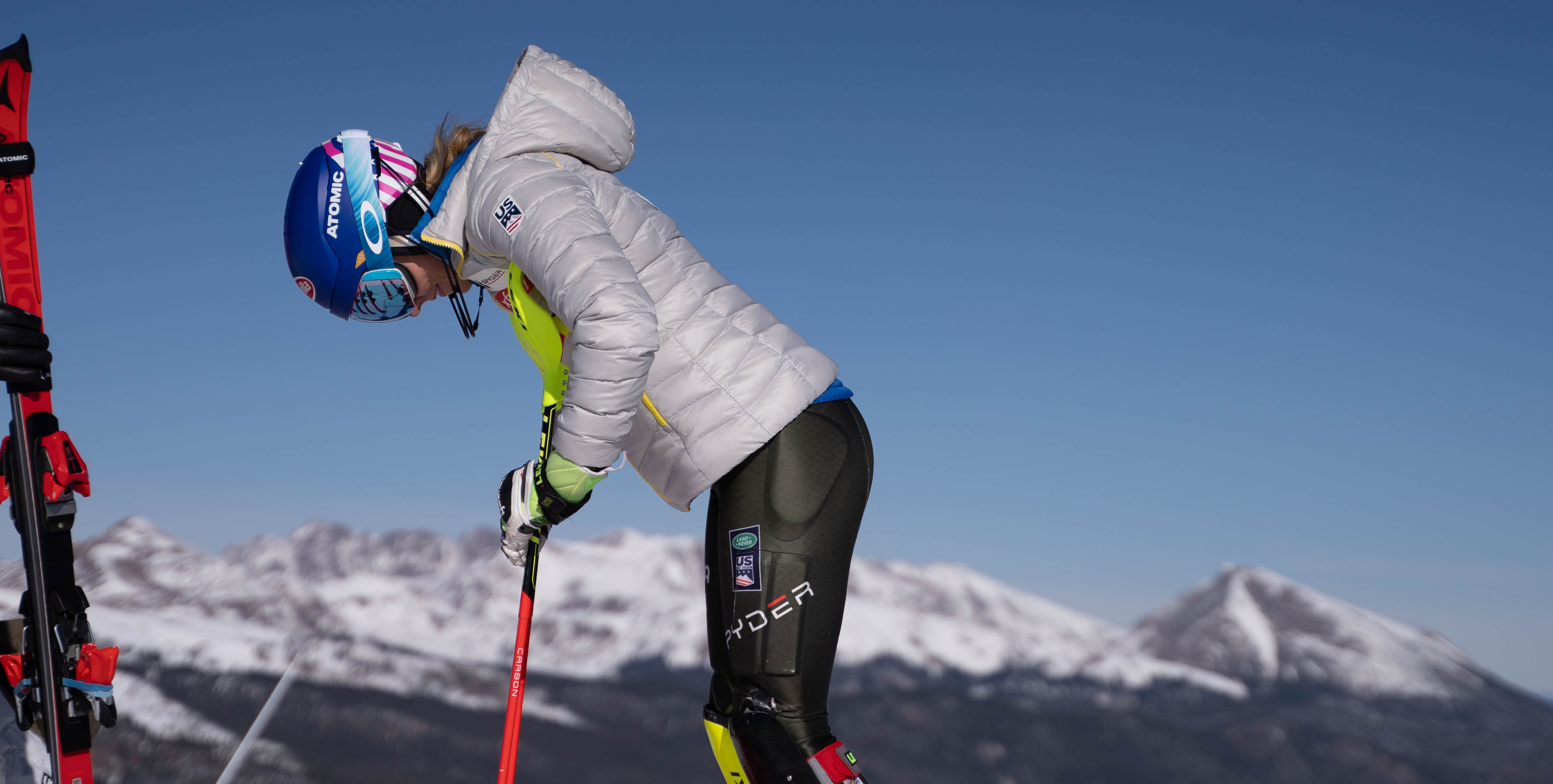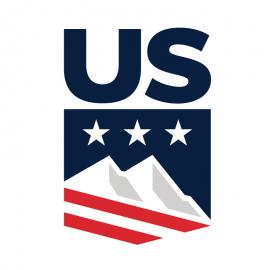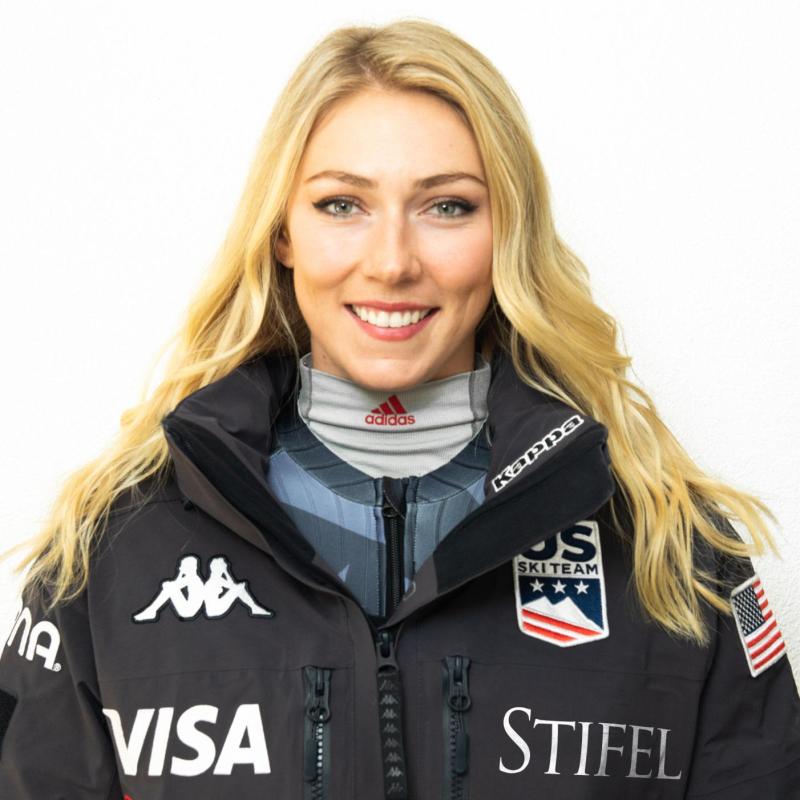Shiffrin Returns to Snow at Copper for First 2020-21 Training Camp

Though the time away from the mountain was challenging for Land Rover U.S. Alpine Ski Team athletes, there was one athlete, in particular, who made the most of the time away—spending some much-welcomed time with her family, settling into her new normal as the “CEO” of her brand as she dove into learning about finance and accounting, giving back to charitable causes for COVID-19 relief, launching her involvement with her new foundation, Kindness Wins, raising $41,000 through the All In Challenge with a HomeLight Killington Cup VIP package benefitting those faced with food insecurity during the pandemic, and working closely and tirelessly with U.S. Ski & Snowboard on a future fundraising campaign that will benefit all U.S. Ski & Snowboard athletes across all sports...all while dancing, singing, AND staying fit in her home gym. That would be two-time Olympic gold medalist Mikaela Shiffrin, of course.
Following the tragic passing of her father in February, Mikaela spent more than a month at home in Edwards, Colo. with her family. She returned to Europe in early March in hopes of stepping into the start gate for one final FIS Ski World Cup event prior to the end of the season, in a place that personally meant a lot to her—Åre, Sweden. That hope would soon be shattered, as the races were cancelled and the season cut short due to COVID-19. Mikaela’s world had stopped in February, but the entire world came to a screeching halt in March when the global pandemic hit.
Even so, Mikaela would get on the plane from Europe back home, feeling a sense of gratitude for how far she had come. As she told the New York Times in March while still in Åre, “If nothing else, I’m grateful that we came this far, even with the races canceled. So I got to get out there for that training session with full intentions of preparing for a race and skied with that intensity. I accomplished that, and that was all I had set out to do.
“It was maybe in the long term even better that I didn’t step into the start gate and have to deal with the mental challenges of knowing that the overall title was still in the cards,” Mikaela added, “because the competitor in me probably would have come out and said, ‘I care about the results,’ even though that was never my focus.”
Fast forward to June, and, after months of waiting, Mikaela would get her chance to return to the mountain, just a short drive from her home at U.S. Ski & Snowboard Official Training Site, Copper Mountain, Colo. After weeks of planning and time spent creating COVID-19 protocol, led by U.S. Ski & Snowboard High-Performance Director Troy Taylor and Lead Physical Therapist Gillian Bower, along with team managers, staff, and beyond, athletes were finally able to return back to snow. And, how sweet it was!
“Returning to snow was—it’s difficult to describe, truthfully—because it was really amazing,” reflected Mikaela’s Head Coach, Mike Day. “It was something that was so refreshing like I haven’t really experienced in my career. In my career, there was not a time where we had no option to ski, so when we were finally able to get back on snow with everything going on in the world and COVID, it was really special,” he added.
Perhaps the extra time off snow gave athletes and staff an even greater sense of gratitude for their return to the mountain and the sport they have so much passion for, which is reflected in Mike’s sentiments about the camp. “We can’t begin to thank Frank Kelble and Copper enough for the effort they put in to produce great venues, safe venues—both with protection with b-net but also with social distancing measures and really well-thought-out planning,” commented Mike. “They did an excellent job in all capacities to make sure we had great training and were safe.”
U.S. Ski Team athletes are accustomed to descending upon the U.S. Ski Team Speed Center at Copper Mountain for training camps in October and November with supreme conditions, but this June camp was a unique opportunity for the team, with conditions that surpassed expectations of both athletes and staff.
“The conditions really surprised us—they’ve been remarkably good and we couldn’t be happier,” admitted Mike. “We were excited to go skiing, but our expectation was not extremely high with what we would get for quality, and we’ve had extremely high-quality training. It has been mostly freeze-thaw snow, but it’s pretty spectacular to not be above treeline, but to actually be in the trees, and be in a familiar place.”
The variable conditions provided for some productive training sessions. “We’ve had a couple of days that were warmer than others, which has also been something that we needed to focus on with Mikaela, on softer, salted conditions—which has been a nice balance,” added Mike. “And we’ve had some extremely hard snow as well, so we’ve been able to cover a variety of conditions and produced really good high volume and quality with access to the Excelerator lift and such a quick turnaround. It was a really good venue to work with at this time of year, and we were lucky to accomplish all that we did.”
Having not been able to build into the prep period as they had originally planned, the focus of this camp was really fundamental. Mikaela’s focus was fundamentals in both slalom and giant slalom, with giant slalom being the primary focus. “We’ve been able to get good volume done in both events,” said Mike. “Same focus points we’ve worked on in the past, but it provided us a little bit better of an environment to be able to work through them. I was excited to see the level that Mikaela brought back to snow. She was immediately skiing at a very high level, which was nice to see, in both events.”
While the entire staff wasn’t able to travel (notably Jeff Lackie) due to COVID-19 restrictions, U.S. Ski & Snowboard’s Western Region FIS Coach Fletcher McDonald stepped up to fill in the gap, along with Green Mountain Valley School’s (GMVS) Charlie Powell, which was definitely a welcome addition to the group.
“Fletcher McDonald has been able to be with us, and not only has he been amazing and a great fit, but he can do massive amounts of work—but it’s also nice to have someone from within the organization. I would thank Fletcher, as well as Bill Gunesch [Western Region Development Director] and Chip Knight [Alpine Development Director]—it was just nice that we were able to get him in. I think it was a special experience for him, but equally rewarding for us,” he added. “Then, Charlie stepped into the role of serviceman for this camp, which has been amazing, and he’s also a really fluent coach, so he’s been able to do a number of things on the hill as well as take care of the skis. So it’s been really incredibly seamless and really high-level execution, so it’s been great.”
For Mikaela, returning to the mountain, while being able to stay in the comfort of her own home as she and her family adjust to their new life without their dear father and husband, was so special. “It felt amazing to be back on snow after having the longest time off skis that I can remember in my career,” reflected Mikaela. “I wasn’t sure how it was going to feel after such a long time and with everything going on in the world, but I am so thankful to have had the opportunity to spend some time training on snow, as I realize so many people in our country hardly have the chance to even get outside right now and the damage that is doing emotionally and mentally is beyond words.”
“Of course there are still so many unknowns we’ll have to navigate moving forward in this ‘new normal,’ but I really can’t thank Copper, the U.S. Ski Team, and my team enough for working together to create great training conditions that led to a really productive camp,” she added. “Many of our competing nations have had access to on-snow training over the last weeks and will continue to have access throughout the summer on the glaciers, while some competitors were never forced to go off-snow at all, and still some have yet to touch their skis to snow, and may not have the chance until the fall or winter...so I am incredibly grateful to be among the athletes who have been able to practice on snow for any amount of time at all.”
In terms of what’s next...it’s really unknown at this point. Head Women’s Coach Paul Kristofic said, “We’re keeping all options open and we have multiple plans in place, and all of them are driven by our ability to travel and travel safely.” Currently, said Paul, the women’s team has plans that are all domestic, plans that are based in Europe, and those in the Southern Hemisphere “which are definitely challenged at the moment.” He added, “The number one priority is to do it safely and number two is to be able to capitalize on the best training we can get safely, so that may turn out to be a domestic Mt. Hood program for the summer.”
U.S. Ski & Snowboard sanctioned training camp attendance is optional. U.S. Ski & Snowboard athletes and staff should not feel pressure to travel to train. All sanctioned training camp policies and protocols are subject to change based on local, state, and federal public health orders, updated guidance from the USOPC, or updated U.S. Ski & Snowboard policies.

